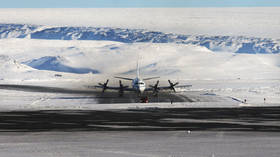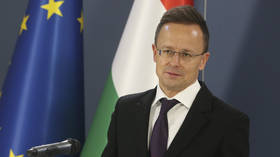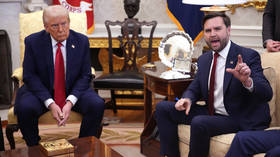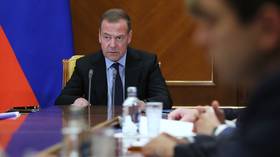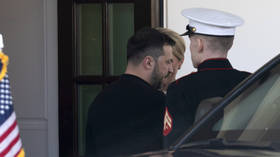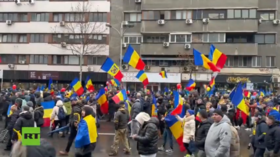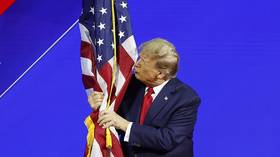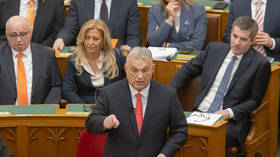‘Whisky war’ ended by Arctic nations
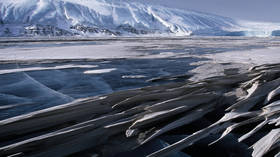
Canada and Denmark have at last officially agreed to split the tiny Hans Island, located in the middle of their Arctic border, between themselves. Tuesday’s binding agreement ends a decades-long territorial dispute dubbed the “whisky war” by the media, with about 60% of the island going to Denmark and 40% going to Canada.
The uninhabited half-square-mile island is located in the Kennedy Channel of the Nares Strait, 1,100 km (684 miles) south of the North Pole. The channel lies between Greenland’s northwest coast and Canada’s Ellesmere Island.
When the two countries agreed in 1973 to draw a border through the strait, they put off deciding who would own the barren landmass in the middle, leading to a series of petty quarrels that came to be known as the “whisky war” due to the bizarre manner in which the nations marked their territory.
In 1984, Denmark’s minister of Greenland affairs kicked off the tradition by raising a Danish flag on the island and burying a bottle of Danish schnapps at its base, accompanied by a note reading “Welcome to the Danish island.”
Canada responded in kind, planting its own flag atop a bottle of Canadian brandy. The two countries went back and forth, leaving flags and bottles as they pleased until this year, when they decided the time had come to send “an important signal now that there is much war and unrest in the world.”
“It sends a clear signal that it is possible to resolve border disputes… in a pragmatic and peaceful way, where all parties become winners,” said Danish Foreign Minister Jeppe Kofod.
Canadian Foreign Minister Melanie Joly agreed, noting that “when you look at what’s going on in the world right now,” referring specifically to the conflict in Ukraine, “we really wanted to give more momentum and renew our energies to make sure that we would find a solution.”
The two countries’ foreign ministers will exchange bottles of their respective liquors for the last time on Tuesday, officially concluding what Joly called “the friendliest of all wars.”
